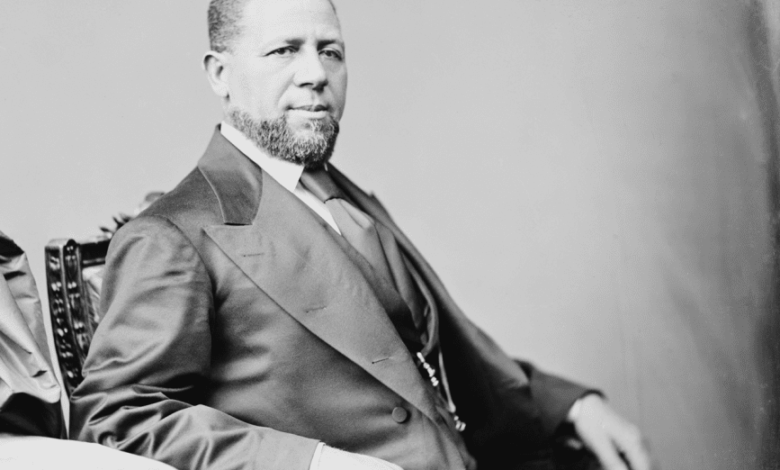Jan 20, 1870: America’s 1st Black Member of Congress Denied His Seat


 On January 20, 1870, Hiram Rhodes Revels (1827-1901) was elected to the U.S. Senate, and slated to become the first African American to serve in the U.S. Congress. Revels was elected in Mississippi to fill the vacancy left after the state’s secession from the United States prior to the Civil War.
On January 20, 1870, Hiram Rhodes Revels (1827-1901) was elected to the U.S. Senate, and slated to become the first African American to serve in the U.S. Congress. Revels was elected in Mississippi to fill the vacancy left after the state’s secession from the United States prior to the Civil War.
Revels was born free in 1827 in Fayetteville, North Carolina, to free people of color, with ancestors who had been free since before the American Revolution.
His parents were of African American, European, and Native American ancestry. His mother was also specifically known to be of Scots descent. His father was a Baptist preacher.
During the Civil War, Revels had helped organize two regiments of the United States Colored Troops and served as a chaplain. He took part at the Battle of Vicksburg.
Revels was a second cousin to Lewis Sheridan Leary, one of the men who were killed taking part in John Brown’s raid on Harpers Ferry in 1859
After the so-called Confederacy’s 1865 defeat in the Civil War, Reconstruction amendments to the U.S. Constitution abolished slavery, established the citizenship of formerly enslaved Black people, and granted Black people civil rights — including granting Black men the right to vote.
For the brief Reconstruction period, which lasted until 1877, federal officials and troops remained in Southern states and enforced these new rights. As a result, Black people in the South were for the first time voters, political candidates, and election winners. Hiram Revels was one of those winners.
However, immediately upon Revels’s arrival in Washington, Southern white politicians still committed to the ideas of white supremacy and racial hierarchy were determined to block his seating to the U.S. Congress.
They declared his election null and void, asserting various dubious objections, including a claim that Revels was ineligible for the Senate because — like all Black Americans — he was not a U.S. citizen until the passage of the Fourteenth Amendment.
Hiram Revels was eventually seated in the Senate on February 25, 1870, after a Senate vote of 48 to 8. However, the attempt to prevent him from taking his rightful place in office was an early illustration of the deeply rooted racial animus and belief in inequality that remained in the South and in the nation that would continue to terrorize and plague Black people for generations — especially after federal protection was withdrawn.
A version of this essay was first presented by the Equal Justice Initiative.
Source link





